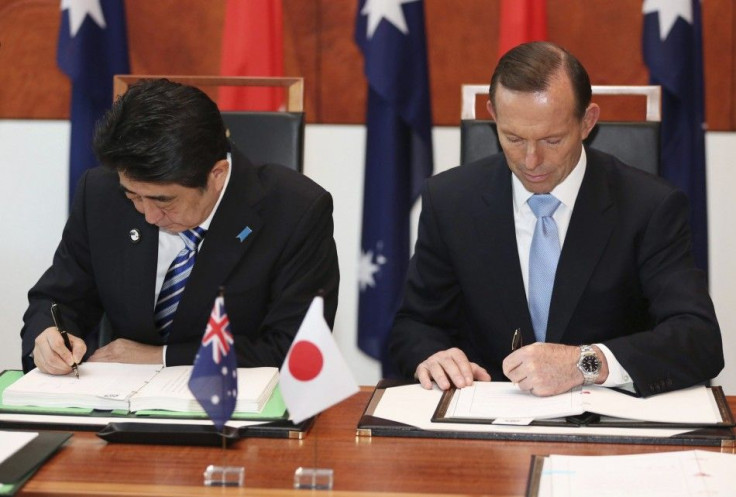Australia-Japan Ink Free Trade Agreement; Opens $5 Trillion Market

Visiting Japanese Prime Minister Shinzo Abe signed on Tuesday a free trade agreement with Australia, which opens Japan's $5 trillion market to the Land Down Under.
Australian PM Tony Abbott inked the free trade deal on behalf of the country. The agreement would cut Japan's almost 40 per cent tariff on Australian beef exports and reduce Australia's tariffs on Japanese vehicles, household appliances and electronics.
Australian business leaders lauded the deal.
Business Council of Australia Chief Executive Jennifer Westacott pointed out that Japan has provided better result to Australia than Canberra's other trade deals. She said, "With one in five Australian jobs related to trade, the benefits from important agreements like this reach far into the community."
John Brogden, chief executive of the Financial Services Council, noted that Japan has one of the world's largest financial services market and a significant trading partner of Australia. He said Japan has guaranteed cross-border access to Australian fund managers who would provide investment advice, portfolio management services and trade in wholesale securities transactions.
Innes Willox, chief executive of the Australian Industry Group, lauded that Australia signed a free trade deal with Japan ahead of its competitors - New Zealand, the European Union, the U.S. and Canada, which have yet to finalise their respective trade agreements with Tokyo.
But he acknowledged the free trade agreement would have mixed benefits for the country's manufacturing sector with the removal of Australia's remaining tariffs on Japanese imports. While it would lower cost for Aussie producers who use Japanese parts in their production, local manufacturers would also have more pricing competition from cheaper made-in-Japan products.
YouTube/axelheaert45





















